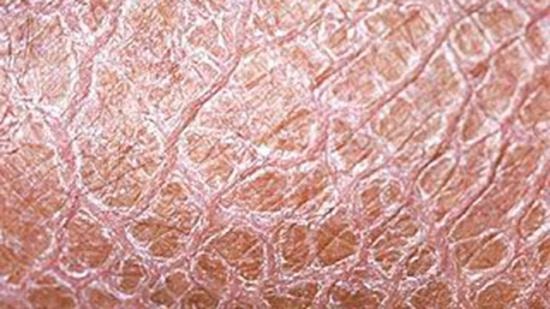Ichthyosis Vulgaris
 Ichthyosis is part of a group of skin diseases resulting in extremely thick, dry, and scaly skin. The skin begins to look like it has fish scales. There are over 20 different variants of this condition. Ichthyosis vulgaris is the most common one affecting over 95% people with the condition.
Ichthyosis is part of a group of skin diseases resulting in extremely thick, dry, and scaly skin. The skin begins to look like it has fish scales. There are over 20 different variants of this condition. Ichthyosis vulgaris is the most common one affecting over 95% people with the condition.
You should speak to a board certified dermatologist if you can’t get rid of scaly skin even after moisturizing the skin twice a day. The dermatologist will assess whether you are suffering from ichthyosis or some other skin condition.
Texas Surgical Dermatology, led by board certified dermatologist Dr. Tri H. Nugyen, provides safe and proven skin care procedures to patients in Houston, Katy, Spring, The Woodlands, Texas, and surrounding communities.
How Is Ichthyosis Vulgaris Diagnosed?
Ichthyosis vulgaris is usually diagnosed by dermatologists by looking at the patient’s skin. Your dermatologist will also ask you a few questions. It can be helpful if you have the answers to the following questions before making your appointment:
- Do any of your blood relatives have a similar skin condition?
- What was your age when the skin condition first started?
- Do you have any other medical or skin condition?
- Do you take any medicines or supplements?
In some cases, the dermatologist may require a biopsy for diagnosing the condition.
How Is Ichthyosis Vulgaris Treated?
Inherited ichthyosis vulgaris doesn’t have any cure. The treatment basically focuses on reducing dry and scaly skin. Your dermatologist may ask you to do the following:
- Take regular and frequent baths as directed. Soaking your skin will help in softening scales and hydrating the skin.
- Your dermatologist may recommend using petroleum jelly or some other product if you have open sores before taking a bath. This will help in reducing the stinging or burning caused by water.
- Many patients claim that the stinging and burning can be reduced by adding table salt or sea salt to water.
- Soaking can help in softening the scales and reduce it considerably. Your dermatologist may ask you to gently rub the scales with a buff puff, abrasive sponge, or a pumice stone.
- You should apply moisturizer while your skin is still damp from bathing. Don’t wait for more than two minutes to get this done. Moisturizer helps in sealing water from the shower or bath. You may be recommended moisturizers containing lactic acid, urea and alpha hydroxyl acid. These ingredients are helpful in reducing scales.
- Deep cracks should be covered with a thin layer of petroleum jelly
- Your dermatologist will prescribe medications for treating skin infections. These medications may need to be taken orally or applied topically.
- Your dermatologist may ask you to add a tiny amount of bleach to your bath if you are prone to skin infections. This is called bleach bath therapy and can help in reducing bacteria.
You would be prescribed medications if the ichthyosis is severe and doesn’t improve with moisturizer, baths and scale remover. Texas Surgical Dermatology, led by board certified dermatologist Dr. Tri H. Nguyen, receives patients from Houston, Katy, Spring, The Woodlands, Texas, and nearby areas for innovative and advanced skin care treatments.
For More Information contact our Board Certified in Dermatologists at Texas Surgical Dermatology in Spring, TX
For more information on procedures and treatments offered at Texas Surgical Dermatology PA please call 832.663.6566 or click here to contact our dermatologists. Helping patients in Houston, The Woodlands, Spring, Katy and other surrounding areas of Texas.

